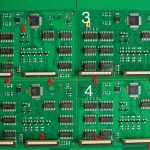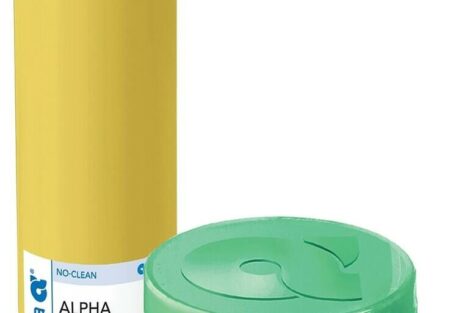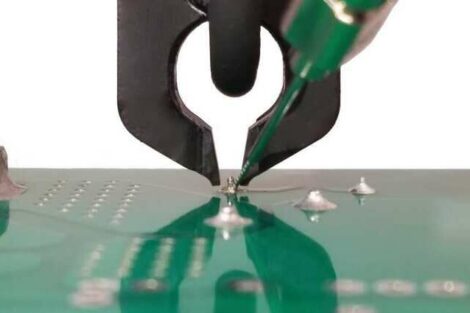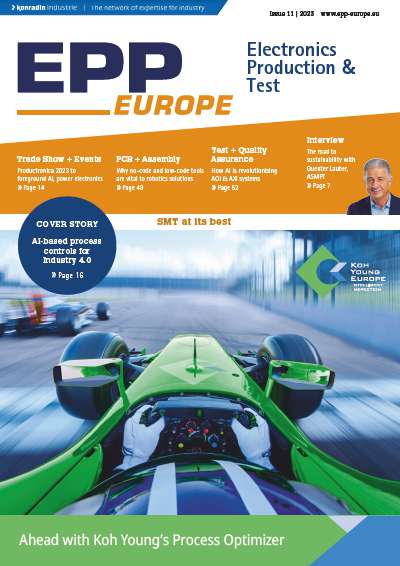Since the EU’s Restriction of Hazardous Substances (RoHS) Directive – adopted in 2003 – banned lead in electronics products intended for the EU’s internal market, the transition to a lead-free soldering process has been far from problem-free. But that reliability would turn out to be such a big issue has been a surprise to most in the industry.
Lars Wallin; IPC European Representative; Stockholm (Sweden)
Open product reliability testing in Stockholm as part of a live production event generated some quite startling results. It was apparent that many components simply cannot handle the high reflow temperatures of a lead-free soldering process, and that many surface-mount machine suppliers are battling significant problems with QFN packages and other components that are mounting edgeways (bill boarding). However, some suppliers have achieved good results.
The open product reliability testing was conducted at the Electronics/EP 2008 trade fair, Scandinavia’s biggest electronics trade fair, as part of a Live Production event. Already at Electronics/EP 2002 in Stockholm, nine different makes of lead-free solder paste were tested live, with very mixed and frankly disappointing results. Over 60 years until the beginning of the 21st century, the global electronics industry had developed soft soldering using eutectic tin-lead alloy (Sn63-Pb37) into a fine art, resulting in soldering technology and a process that produced near-perfect results consistently.
Open testing for credible results
As a result, many suppliers have shown interest in participating in Live Production events organized by Electronics/EP with the purpose of assisting the electronics industry as a whole in making progress on the reliability issue. And this event was no exception. During the planning of this year’s event, it also became apparent that progress has indeed been made since 2002, and that the solder pastes are not the only new developments in this industry. These included the Mydata Jet Printer MY500, Rehm’s V8 reflow soldering oven and Asscon’s condensation soldering machines. Machine suppliers have also added improvements to their existing models to enhance their chances of producing perfect solder joints.
The sheer number of possible parameter combinations was unwieldy, and to be able to draw any reasonable conclusions from the reliability testing it was necessary for the PCBs produced to be individually traceable, and to construct an advanced inspection and testing setup that could also function live at the trade fair.
Two production lines were constructed on site at the trade fair with new machines manned by experts from the suppliers, along with a test lab. All solder paste came directly from unopened barrels and the PCBs were no more than 3–4 weeks old. The production lines were entirely open to the scrutiny of visitors. During the fair, two different kinds of PCBs of differing complexity were produced in different quantities. All the PCBs produced were labelled with a unique serial number. After the component mounting and soldering processes, the PCBs went directly to inspection and thorough testing and were saved for later inspection by IPC certified inspectors in accordance with IPC-A-610D Class 2 at a local EMS company.
Since lead-free solder paste has a higher surface tension and a narrower reflow temperature range than leaded solder paste, and because the condensation soldering process involves very rapid heat transfer, it also became apparent that another kind of fault was common as well: components being mounted edgeways – bill boarding. Here too, the results varied widely depending on the surface treatment of the PCB and how the solder paste had been applied.
The results of the study were presented at the conference “Tillförlitlighet 2008” (in English, “Reliability 2008”) in Stockholm in last September. This conference attracted representatives from many different industries including the telecommunications, automotive, medical technology and defense industries, as well as subcontractors. Werner Engelmaier, an internationally renowned product reliability expert and chairman of the IPC’s Product Reliability Committee, presented his views on the factors that are important for the future of product reliability. In particular, he urged the conference delegates to put more effort into fully understanding the physics behind the reliability problems in electronics production – or risk never seeing any improvements.
EPPE 442
zusammenfassung
Die Umsetzung der RoHS-Direktive und der resultierende Umstieg auf Bleifrei-Prozesse ist für niemand völlig problemlos zu bewältigen. Doch dass Zuverlässigkeitstests mit bleifrei-gelöteten Baugruppen so alarmierend ausfallen, überrascht. IPC-Repräsentant Lars Wallin berichtet.
Nécessitant un passage à des procédés sans plomb, la mise en conformité avec la directive RoHS n’est un jeu d’enfant pour personne. Néanmoins, les résultats alarmants des essais de fiabilité sur assemblages à brasage sans plomb étonnent. Représentant de l’IPC, Lars Wallin, témoigne.
Share:











